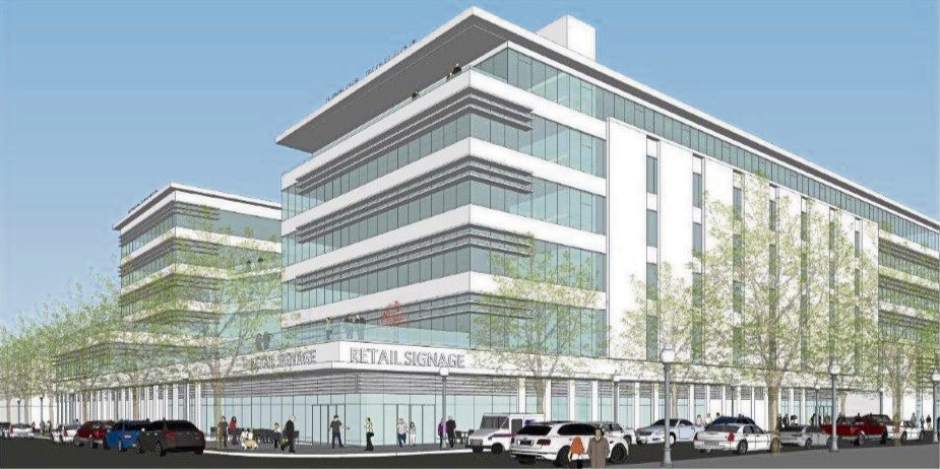Pittsburgh planning board approves design for East Liberty's Penn Plaza project
After meeting for more than four hours Tuesday, members of the Pittsburgh Planning Commission approved preliminary design plans for a controversial $150 million development on the site of a former East Liberty apartment complex.
Developer Lawrence Gumberg, president of Downtown-based LG Realty Advisors, said a maximum height condition set by the commission could torpedo the project. Pennley Park South, a subsidiary of LG Realty, had plans for two 150-foot-high buildings. Commissioners set the maximum height at 108 feet to complement other buildings in the neighborhood. Pittsburgh zoning regulations limit buildings in East Liberty to a maximum 238 feet, according to attorney Jonathan Kamin, who represents Pennley Park.
“I'm disappointed that the planning commission chose to make these kinds of changes and conditions, and candidly, I think it's inappropriate,” Gumberg said. “The zoning that was authorized by the (Pittsburgh) City Council provides for appropriate height limits. ... Our plan complied with the zoning in every aspect.”
Commission members approved the plans by a 4-2 vote. Christine Mondor and Sabina Deitrick voted no, voicing concerns about the socio-economic impact and “contentious nature” of the project.
More than 30 people lined up during the 4.5-hour meeting, mainly to oppose the development on the site of the former Penn Plaza Apartments, which provided housing to market rate and low-income tenants.
They complained that the razing of Penn Plaza has exacerbated neighborhood gentrification by forcing poor and longtime residents from their homes and out of East Liberty. They said residents have been shut out of negotiations over the plan and called on Pittsburgh to take the property by eminent domain for construction of low-income housing.
“This development demolished 10 percent of the affordable housing in East Liberty to be theoretically replaced by other housing in less desirable places with uncertain levels of affordability and an uncertain time frame for funding and completion that is likely to stretch beyond two years, and for what?” said Jessica McPherson, 38, of Friendship. “So an upscale grocery store that already owns prime real estate half a mile away can move to a place that it likes better?”
She was referring to Whole Foods on Centre Avenue in East Liberty, which originally planned a move to the development but pulled out because of controversy surrounding it. Whole Foods spokeswoman Rachael Dean Wilson said the company is reviewing a proposed agreement with Pennley Park.
Several people spoke in support of the project, noting that it's expected to generate millions for a neighborhood affordable housing fund.
A court settlement stipulates that 70 percent of increased tax revenue after the project is completed would be split, with half going toward public infrastructure and the other half for affordable housing and improvements to a small park on site.
The Pittsburgh Urban Redevelopment Authority estimated the first phase of construction would generate $2.65 million for affordable housing and improvements to Enright Parklet.
The Rev. Darryl Canady, senior pastor of the Rodman Street Missionary Baptist Church in East Liberty, supported the plan, saying Penn Plaza was run down and plagued with crime.
“The developer has met with leaders in our community of color and has been working with us to listen to voices that were silent in the past and made changes that would help the trust fund for affordable housing, hire minority employees and assist in giving voice to the voiceless,” he said. “We have negotiated. We have compromised on both sides, and I would encourage you to vote positive on this.”
Penn Plaza, built in 1968, was part of an urban renewal effort that resulted in the mass demolition of homes and businesses in East Liberty. About 228 people lived in Penn Plaza in 2015, when LG Realty notified residents it intended to close the complex.
The planning commission in 2016 rejected the company's redevelopment plans. Developers appealed the decision to court, and Pittsburgh and four civic groups settled with the company in October.
Kamin said LG Realty would sue again or allow the property to “remain fallow” if plans were not approved.
Bob Bauder is a Tribune-Review staff writer. Reach him at 412-765-2312, bbauder@tribweb.com or via Twitter @bobbauder.

